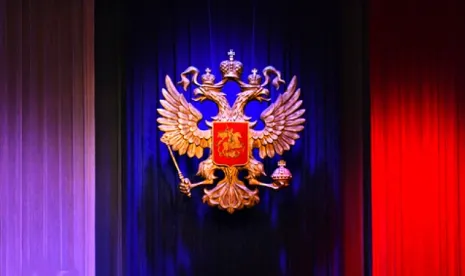On Wednesday, April 6, 2022, the U.S. Government, in concert with the G7 and European Union, took significant additional sanctions actions against Russia “to impose severe and immediate economic costs on the Putin regime for its atrocities in Ukraine, including in Bucha.” ” The U.S. Government actions included:
-
New Executive Order Prohibiting All New Investment in Russia and Providing for Possible Restrictions on Exports of Services;
-
Blocking Sanctions on Sberbank and Alfa-Bank and Issuance of New General Licenses
-
Announcement of Blocking Sanctions on Certain Russian State-Owned Enterprises
-
Blocking Sanctions on Certain Russian “Elites”
-
White House Commitment to Allowing Humanitarian Transactions
We analyze each of the current developments in detail and summarize the significant prior actions taken in March 2022 below.
New Executive Order Prohibiting All New Investment in Russia and Providing for Possible Restrictions on Exports of Services
New investment. President Biden issued a new Executive Order (E.O.) prohibiting all investment in the Russian Federation by U.S. persons. Just a few weeks ago, the President had signed E.O. 14066, which prohibited investment in the Russian energy sector, and E.O. 14068, which gave the Secretary of the Treasury the ability to add additional sectors to the investment ban, but the recent events in Ukraine appear to have convinced the White House to scrap that structure and immediately prohibit any new investment in the Russian Federation across the board. While the White House has placed the new E.O. on its website, the U.S. Department of the Treasury’s Office of Foreign Assets Control (“OFAC”), the agency charged with administering the sanctions authorized by the new E.O., has not yet posted it, which suggests that OFAC may be finalizing FAQs and perhaps a general license or two that it plans to post concurrently, although it seems unlikely that OFAC would provide a wind-down authorization for new investment that would allow any significant funds flows into Russia.
Exports of services. The new E.O. also provides authority to the Treasury Department to prohibit the exportation or supply of any category of services to Russia as deemed appropriate by the Secretary of the Treasury. This may be the first E.O. that places in Treasury’s hands the ability to expand sanctions to ban the exportation of some or all services to Russia without the need for any further action by the President, but it is consistent with prior delegations of sanctions power to Treasury to, for example, designate persons for blocking or to identify sectors of foreign economies for sanctions. It is not clear, however, whether and how quickly Treasury might use this power, but the sanctions threat is now more present, and it will now only take the stroke of the Secretary of the Treasury’s pen to ban the export of various (or all) services to Russia.
OFAC Blocking of Sberbank and Alfa-Bank and Issuance of New General Licenses
OFAC placed blocking sanctions on two major Russian banks – Sberbank and Alfa-Bank – and added them and 48 of their subsidiaries to OFAC’s Specially Designated Nationals and Blocked Persons List (“SDN List”). Both entities had been the subject of prior significant, but less severe, restrictions. By instituting the blocking sanction, OFAC has now prohibited all transactions by U.S. persons or in (or through) the United States that in any way involve these two banks, including for example any funds transfer that has Sberbank or Alfa-Bank anywhere in the payment stream (upstream or downstream). Furthermore, all entities directly or indirectly owned 50% or more, whether individually or in the aggregate, by one or more of these banks and any other blocked Russian individual or entity are also subject to these blocking sanctions, whether listed on the SDN List or not.
All funds transfers and other property in which the newly blocked entities have any interest that comes into the
United States or into the control or possession of a U.S. person is required to be frozen and reported to
OFAC. OFAC also identified five vessels in which one Alfa-Bank subsidiary has an interest, but it is important to keep in mind that all vessels and other property in which any of the newly blocked entities have an interest are now blocked if they are in the United States or come within the possession or control of a U.S. person. The list of the identified banks, subsidiaries, and vessels can be found here.
In its press release accompanying Wednesday’s actions, Treasury went out of its way to clarify that Alfa-Bank
(Ukraine) is a distinct entity and not blocked by the April 6 actions. We should all feel sorry for Alfa-Bank (Ukraine) because, try as OFAC might to let the world know that bank is not blocked, it is likely that most international bank transfers mentioning Alfa-Bank (Ukraine) are still going to be rejected or held up. There is not much OFAC can really do to stop over-compliance.
OFAC concurrently issued a number of new and amended General Licenses to soften (slightly) the blow of these new blockings. In order of what we consider their relative importance, they are:
Wind down for Sberbank. New General License 22 authorizes the wind down of transactions involving Sberbank or any entity in which it has, directly or indirectly, a 50% or greater interest though the end of day in Washington on April 12, 2022, but this authorization does not allow transactions that are separately prohibited by Directive 2 (correspondent account and financial transactions involving Sberbank).
Wind down for Alfa-Bank. New General License 23 authorizes the wind down of transactions involving Alfa-Bank or any entity in which it has, directly or indirectly, a 50% or greater interest though the end of day in Washington on May 5, 2022.
Extended wind down for Sberbank CIB USA, Inc. New General License 21 authorizes transactions related to the wind down of Sberbank CIB USA, Inc. and any entities in which it has, directly or indirectly, a 50% or greater interest through the end of day in Washington on June 6, 2022.
Adding Alfa-Bank to existing energy transactions license. General License 8A (now 8B) was amended to add Alfa-Bank to the list of banks with which certain energy-related transactions are authorized through the end of day in Washington on June 23, 2022 (Sberbank was already included in this authorization).
Adding Alfa-Bank to existing debt and equity wind down license. General License 9A (now 9B) was amended to add Alfa-Bank to the list of banks with which transactions related to the wind down of certain debt and equity are authorized. Such debt and equity transaction are authorized with respect to Alfa-Bank through the end of day in Washington on May 24June 29, 2022 (Sberbank was already included in this authorization).
Adding Alfa-Bank to existing derivative contracts wind down license. General License 10A (now 10B) was amended to add Alfa-Bank to the list of banks with which transactions related to the wind down of certain derivative contracts are authorized. Such debt and equity transaction are authorized with respect to Alfa-Bank through the end of day in Washington on June 29May 24, 2022 (Sberbank was already included in this authorization).
OFAC Blocking of Certain Russian State-Owned Enterprises
The White House announced that blocking sanctions will soon be placed on several additional Russian stateowned enterprises, and in an official White House-run press call an unnamed official stated that those additional blockings should be announced on April 7 and would not include entities in Russia’s energy sector. The timing of these additional blocking actions, however, does not seem set in stone.
Once these blocking actions are taken, all transactions by U.S. persons or in (or through) the United States that involve any of the blocked state-owned enterprises will be prohibited. These sanctions also will apply to any entity directly or indirectly owned 50% or more, whether individually or in the aggregate, by one or more of the blocked state-owned enterprises and any other blocked Russian individual or entity, regardless of whether or not the entities are listed on OFAC’s SDN List.
OFAC Blocking of Certain Russian “Elites”
OFAC also placed blocking sanctions on 20 additional individuals associated with high levels of the Russian Government, including President Putin’s adult children, Foreign Minister Lavrov’s wife and daughter, and members of Russia’s Security Council. These blocking actions were announced in two different tranches, which can be found here and here.
As with the blocking sanctions described above, these blocking sanctions prohibit all transactions by U.S. persons or in (or through) the United States that involve these individuals. The blocking sanctions also apply to any entity directly or indirectly owned 50% or more, whether individually or in the aggregate, by one or more of these individuals and any other blocked Russian individual or entity, whether the entities are listed on the SDN List or not.
White House Commitment to Allowing Humanitarian Transactions
The White House also announced that it will continue to provide for sanctions carve-outs for transactions related to basic foodstuffs and agricultural commodities, medicine and medical devices, and telecommunications services to support the flow of information and access to the internet.
Additional U.S. Government Sanctions Actions Taken in March 2022
In addition to the April 6, 2022 sanctions actions described above, the U.S. Government took a number of other actions against Russia in mid-late March. Below, we outline some of the relatively more significant actions over the past few weeks.
On March 31, the Secretary of the Treasury issued a Determination under E.O. 14024 identifying the aerospace, electronics, and marine sectors of the Russian economy as subject to economic sanctions under E.O. 14024. Individuals and entities can now be blocked for operating in one or more of these sectors.
Also, on March 31, OFAC placed blocking sanctions on 13 individuals and 21 entities operating in Russia’s technology sector or helping Russia evade sanctions. This action can be found here.
On March 24, OFAC placed blocking sanctions on 328 members of the Russian State Duma, dozens of Russian defense entities, and the CEO of Sberbank. This large blocking action can be found here.
Also, on March 24, OFAC issued General License 25 authorizing journalistic activity and news bureaus in the sanctioned Donetsk and Luhansk regions of Ukraine.
On March 18, OFAC issued General License 24 authorizing transactions incident to the receipt of maritime services from individuals who are ordinarily resident in the sanctioned Donetsk or Luhansk regions of Ukraine.
On March 15, the State Department placed blocking sanctions on 11 Russian military leaders for operating in the Russian defense sector. These individuals were placed on the SDN List, and the State announcement can be found here.




 />i
/>i

